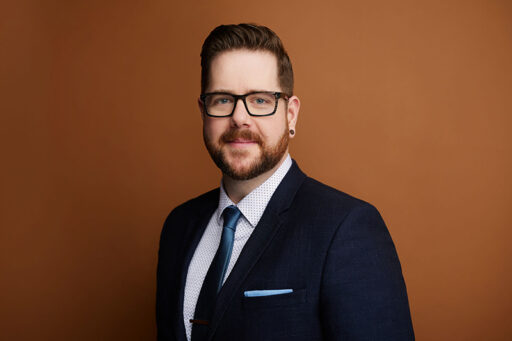College Blog
My physiotherapist is flirting with me. Now what?
The #MeToo moment has raised awareness of sexual harassment in business, politics, media and Hollywood and it’s prompting people in health care to speak up as well.
We’re getting more calls from patients who express concerns about things physiotherapists have done or said. We have been prepared for that. By now I hope that you are fully and completely familiar with the prohibition against dating your patients. It is, quite simply, against the law, not only for physiotherapists but for all health professionals. The College would have no choice but to cancel your license if we found out that you were in an intimate relationship with a patient (even if that patient is your spouse!).
But we also hear stories of inappropriate sexual advances or comments made by clinical instructors, other health care workers in clinics and hospitals, and student or resident colleagues.
Did you know that in one 2016 study of people in the medical field 30% of the women and 4% of the men said they had been harassed. That’s pretty consistent with other industries, so not surprising, but it’s still horrible.
But what about when a patient comes on to you? A quick survey of the physiotherapists who work in our office was revealing—they practically laughed at the question—they said OF COURSE it had happened, lots of times.
And then there’s the physiotherapist who tells women on Tinder that they can rely on his skilled hands because he’s a physio. Is it me or is that plain yuck?
No matter how often we talk about these issues – whether it’s with a gathering of friends, with a class full of students, or in a hospital staff room, new questions arise. New anger and hurt emerge. How do you respond to a patient advance? Does it matter if the patient is mentally or physically challenged? What about when a teacher or boss slaps you on the bottom? What about that guy on Tinder? What do you do if you are overwhelmed by attraction to a patient?
This year, when the College comes out to your area, this is what we want to talk about with you. What are the rules? What can you do to protect yourself? How can we help?
Join us at one of our community discussions this fall – dates and locations are listed below, and further details can be found here. We’ll also host a webinar for anyone who isn’t able to attend in person. Please keep an eye on the website, Perspectives and social media for updates, as dates may change.
There is no doubt in mind that you have a piece of this #MeToo moment—let’s see where the conversation takes us.
Community Events
- Toronto
October 11, 2018 from 12 noon to 2:00 pm
- Kingston
October 18, 2018 from 6:00 pm to 8:00 pm
- London
November 22, 2018 from 6:00 pm to 8:00 pm
- Mississauga
January 17, 2019 from 6:00 pm to 8:00 pm
- Scarborough
February 21, 2019 from 6:00 pm to 8:00 pm
- Richmond Hill
March 13, 2019 from 6:00 pm to 8:00 pm
- Hamilton
March 14, 2019 from 6:00 pm to 8:00 pm - Sudbury
TBA from 6:00 pm to 8:00 pm
- Ottawa
TBA from 6:00 pm to 8:00 pm
- Webinar: TBA










I think you need to consider your statements here a bit. Although I am not in this position, it is quite possible that a patient in Northwestern Ontario who is married to a physiotherapist in a small town may need physiotherapy. In that case, the spouse would have no other recourse but to either refuse treatment (against College bylaws) or treat the spouse (against college bylaws). Stating that you would « have no choice but to cancel a licence if we found out you were in an intimate relationship with a patient (even if that patient is your spouse!) » is inherently stating that there is no way for that physiotherapist to be in the right. But withholding necessary treatment in that case would be the greater crime, resulting in permanent disability. As the College’s mandate is to protect the public, you do not meet that mandate with such a statement. I understand you are in Toronto, but perhaps giving some thought and consulting with your rural and remote practice representatives would let you grasp what actually goes on outside of the ivory tower.
Thanks for your comment – it highlights the limits of self-regulation. While most College standards are set by Council as a reflection of the expectations of the whole profession, in this case the rules are very clearly laid out in legislation. The Regulated Health Professions Act requires revocation of certificates of registration for health professionals found guilty of sexual abuse of patients.
The definition of sexual abuse does not exempt patients who are spouses. This means that physiotherapists who have intimate relations with their spouses and also offer their spouses physical therapy could be found to have committed sexual abuse if a complaint or a report was received by the College. This applies whether or not the sexual relationship was consensual. The College does not have discretion to turn complaints away. If the facts of the complaint were proven, a physiotherapist could be found guilty of sexual abuse and lose their license.
In the rare event of an emergency, it is appropriate to provide care. If an emergency does require an initial treatment, the wise physiotherapist will then seek an alternative provider for follow-up and ongoing treatment.
In regards to a physiotherapist refusing to provide care – that’s a valid point, however not necessarily in the scenario you have outlined. The Providing or Refusing Care Standard permits a physiotherapist to refuse treatment as long as the decision is not based on discriminatory reasons, as outlined in the Ontario Human Rights Code.
This is a needed discussion. Unfortunately, there are no CPO visits scheduled into Northernwestern Ontario. I am sure therapists in Sudbury and Thunder Bay and surrounding regions would like to be involved with this topic discussion and meet face to face with CPO staff.
The above comment does outline how sometimes governing rules are inane and not fully thought out for the public as a whole. There needs to be some grey as not all situations are equal.
Hi Angela, thanks for your comment. We will be adding an event in Sudbury – date and location to be confirmed. We look forward to meeting with PTs in Northwestern Ontario in person.